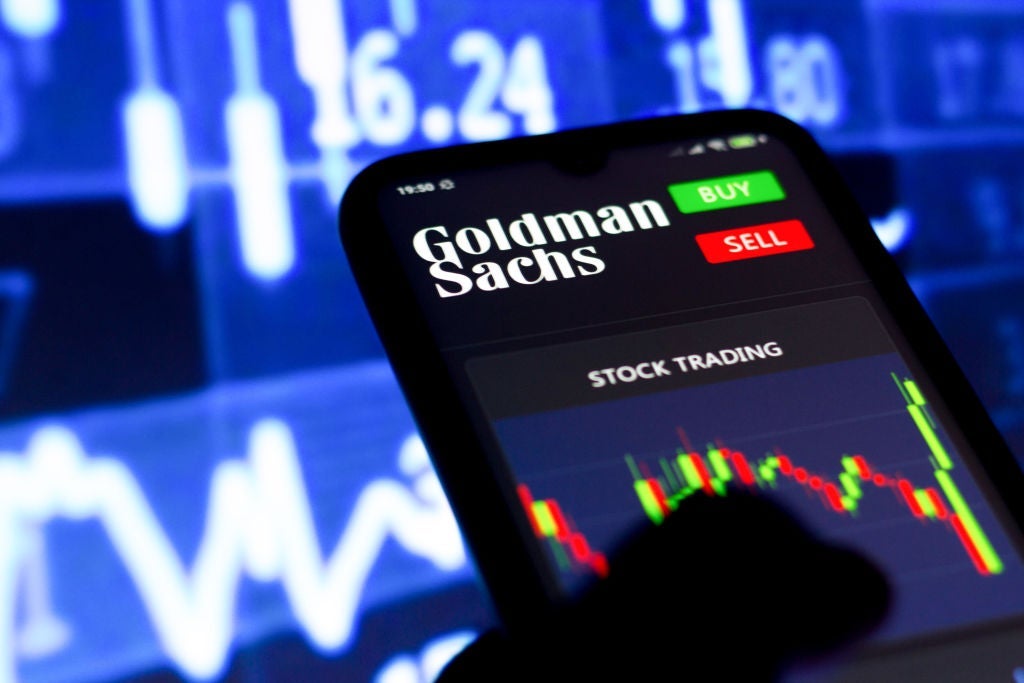
News that investment bank Goldman Sachs is set to partner with leading crypto exchange Coinbase is a significant milestone in cryptocurrency’s journey from fringe financial status to finding credibility with institutional investors. Acceptance from financial giants such as Goldman Sachs had once been a crypto pipe dream. Does this now make the end goal of wholesale institutional investment in crypto a possibility?
Coinbase has partnered with Goldman Sachs in the bank’s first Bitcoin-backed loan, according to multiple reports. “Coinbase’s work with Goldman is a first step in the recognition of crypto as collateral which deepens the bridge between the fiat and crypto economies,” Brett Tejpaul, head of Coinbase Institutional, told Bloomberg in an email response.
The idea of a bridge between fiat and crypto economies raises the question of how the two will coexist in the long term. Paris-based wholesale crypto investor platform Aplo gives institutional investors direct access to digital assets. The company’s CEO and founder, Oliver Yates, says that while Goldman’s acceptance of crypto as collateral for a loan is important, it is not a crypto product sitting on the blockchain. What it may signal, however, is a first step towards a scenario where institutional investors are trading financial products in crypto on a parallel decentralised global financial infrastructure.
“In ten years or so, most of the existing financial infrastructure will not sit in banks and stock exchanges for brokers and lenders anymore,” says Yates. “Instead, it will be one common operating system, which we currently call decentralised finance.”
Crypto proponents believe this system will be cheaper and more efficient to run. “We are looking at the wholesale trading of $1bn worth of crypto while saving every little cent along the way,” says Yates. While retail trading and services in crypto have exploded in the past few years, institutional investment may be the next frontier – provided the infrastructure is there. “The end goal goes far beyond buying Bitcoin with the dollar,” adds Yates.
Mainstream acceptance of crypto brings regulatory problems
Crypto acceptance with institutional investors is rapidly gaining ground. Several banks have opened crypto desks, according to GlobalData analyst George Monaghan. “This shows they are willing to entrust their own money to crypto, as well as other people’s,” he says. “It certainly consolidates at least Bitcoin’s mainstream acceptance.” In fact, Goldman first started offering Bitcoin derivatives to investors in 2021 and made its first over-the-counter crypto trade with the digital asset financial company Galaxy Digital in March 2022.
However, the problem of how to regulate such a system will be a big stumbling block, according to Monaghan. “It is the regulators’ nightmare,” he says. Policymakers around the world are scrambling to fill the crypto market regulatory vacuum, and regulatory risk may well be the barrier to entry for any meaningful participation of institutional investors in the crypto industry.
How well do you really know your competitors?
Access the most comprehensive Company Profiles on the market, powered by GlobalData. Save hours of research. Gain competitive edge.

Thank you!
Your download email will arrive shortly
Not ready to buy yet? Download a free sample
We are confident about the unique quality of our Company Profiles. However, we want you to make the most beneficial decision for your business, so we offer a free sample that you can download by submitting the below form
By GlobalDataRegulatory clarity is critical for building a business, according to Caroline Malcolm, head of international policy at crypto consultancy Chainalysis. “That is particularly true for established traditional finance companies, because in a sense they have more to lose from exposing themselves to operational and regulatory risk by moving into crypto,” she says.
It is important to note that the loan deal between Goldman and Coinbase is structured so that the Bitcoin collateral is held by a third party, according to reports. This means in the case of a default on the loan, Goldman would not have any direct dealings with the Bitcoin collateral and therefore carry no regulatory risk. It remains to be seen whether regulators will see it that way in the longer term.
Crypto cynics will be watching closely to see how far Goldman and other institutional investors will go after dipping their foot in the crypto water, just as regulators will be scratching their heads at the regulatory complexity of creating a novel framework of rules for what is essentially a new and, until now, entirely separate global financial system.







